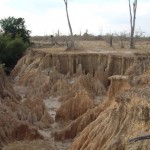 Once again, suppliers of electricity, ZESCO, have submitted a proposed tariff increase, to become effective November this year. At press time, this application was still in the hands of the Energy Regulation Board (ERB), the date for submissions from the public having expired.
Once again, suppliers of electricity, ZESCO, have submitted a proposed tariff increase, to become effective November this year. At press time, this application was still in the hands of the Energy Regulation Board (ERB), the date for submissions from the public having expired.
I don’t believe that there is even one ZESCO customer in Zambiawho will say that they are happy with ZESCO’s performance. Ask anyone and they will complain about load shedding, voltage fluctuations, slow response times when outages occur. Many times, even getting Faults to answer the phone is an exercise in futility.
Having said this, I do see some efforts being made to improve service or perhaps I should say efforts being made so that customers have a perception that service delivery has improved. I took the time and effort to register my account with ZESCO’s ‘SMS Service’. This means that one receives notifications via SMS of planned outages or load shedding. This works … sort of. Sometimes when experiencing load shedding, I will receive an SMS advising me of this. But usually this is only received an hour or so after I have called Faults to report the outage. Should this not be notified in advance (even just a few minutes) so that I don’t waste my time and the call centre’s time reporting the outage? But one also doesn’t know whether the delay is with the phone system and not with ZESCO. Over the last few weeks, I have been receiving advance notification that my supply might be load shed that evening or the following morning. This is infinitely more helpful as it does enable me to plan my work or at least get dinner cooked early. And it is always nice when the load shedding doesn’t happen, presumably because there is no need.
But back to the tariff increases. I have done some digging around on the ERB website and other places to get to grips with these, seemingly, perpetual tariff increases. Over the last few years, it seems as though ERB has made some inroads into working with ZESCO to improve their performance, not only in electricity generation, but in administration and other areas as well. A very interesting and very shocking, if you will pardon the pun, document is the Cost of Service study for the period 2002 to 2006. Key revelations from that document are:
– Five straight years of losses;
– Increasing cash flow problems;
– More than one-third of all customers not metered;
– The average cost per employee doubled every two years between 1999 and 2004 and their total staff costs are 50% of their total annual expenditure;
– The average cost per employee was K 9.5 million per month in 2005/06
– Mining clients use 50% of the power generated but their rates are at a level 28% below the cost of generation.
– ZESCO employees do not pay for power
– Donations amounting to K 9.5 billion; entertainment costs amounting to K 436 million; and ZESCO United Football Club costs amounting to K 4.7 billion.”
– Exported power is sold 15% below cost
Unfortunately, an updated Cost of Service study is not available but it would make very interesting reading.
Key Performance Indicators (KPI) were developed and these are being monitored. The ERB has emphasised the need for ZESCO to meet their KPI’s for any future tariff adjustments, including the one now being considered. But a look at ZESCO’s submission to the ERB and the progress on the KPI’s for the last quarter of 2011, shows some gaping holes:
– Only 16% of new installations had meters installed
– 21% of customers are still unmetered
– Only 6,134 out of a targeted 8,000 meters were installed at already existing connections
– Only 89% of customers are billed regularly
– Of the existing debt, K 96,484,199,000 is for Pre-Paid customers
– The customer/employee ratio is at 95 as opposed to the targeted 100:1
– Since 2009, an additional 500 members of staff have been employed, yet the number of staff and the annual cost of these staff is supposed to be reducing. ZESCO project a 10% increase in staff costs in 2012/13
– ZESCO claim one of the justifications for the tariff increase is the increase in the cost of copper products. Yet they continue to supply the [copper] mines at subsidised rates when world copper prices remain high.
Having highlighted the above, do you believe a tariff increase is justified? I quote from the ELO hit song, Confusion:
Confusion,I don’t know what I should do.
Confusion,I leave it all up to you.

Leave a Reply
You must be logged in to post a comment.